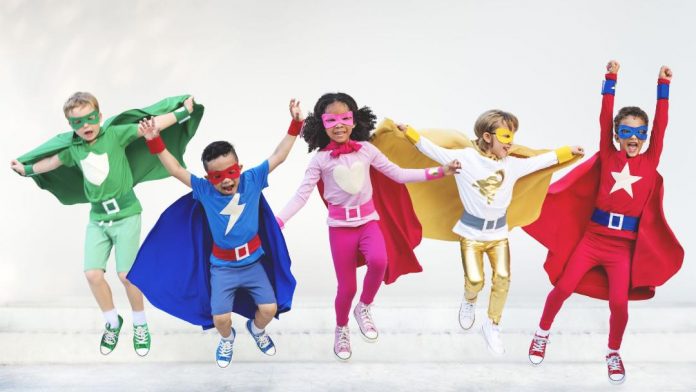From comic book superheroes to historical super men and women – can you crack the superhero code at Shire Hall?
This half term (Sunday, February 16th to Sunday, February 24th,) up to two children dressed as superheroes get free entry to Shire Hall Historic Courthouse Museum, when accompanied by a paying adult. (*Sorry parents, you’re welcome to dress up too, but you still have to pay!)
Young superheroes will be able to follow a free superhero trail around the museum and create their own superhero badge. On Tuesday and Thursday there will be superhero storytelling in the cells.
Visitors are encouraged to dress as their favourite superhero, whether that’s a comic book hero or heroine, or a historical ‘superhero’ they admire. The staff at Shire Hall have been busy picking their favourite superheroes including Dorset’s own Tolpuddle Martyrs.
Director Anna Bright said that one of her heroes was leader of the suffragette movement Emmeline Pankhurst. She said the superhero theme tied into Shire Hall’s ethos of promoting social justice. She said: “It ties into the ideas we promote here that everyone’s voice counts and when people get together, like the suffragettes or Tolpuddle Martyrs, they can change the world. That’s the idea of being a superhero.”
Shire Hall apprentice Nathanial Green is organising the event. He said that his superheroes would be Civil Rights leader Martin Luther King and women’s education activist Malala Yousafzai. He said: “Superheroes fight criminals and evil-doers and they stand up for innocent people. It’s going to be a really fun event for families. When it’s cold and dark outside, we will have lots of fun activities going on.”
There will be superhero themed treats at Shire Hall café, as well as the museum’s popular £5 lunches menu and £4 children’s lunchbox. For more information about superheroes week visit shirehalldorset.org.
Shire Hall Historic Courthouse Museum’s Social Justice Superheroes
Martin Luther King Jr.
An American Baptist minister and activist who became the most visible spokesperson and leader in the civil rights movement from 1954 until his death in 1968.
Nominated by Nathanial Green
Mary Wollstonecraft (1759–1797)
One of the founders of British feminism, in the 1790s Wollstonecraft also campaigned to end slavery and the slave trade, which were abolished in 1807.
Nominated by Harriet Still
Nancy Astor, Viscountess Astor (1897–1964)
Elected to Parliament in 1919, Astor was the first woman to sit as an MP. She represented Plymouth Sutton and was a supporter of women’s issues everywhere.
Nominated by Abbie King
Nelson Mandela (1918–2013)
South African anti-apartheid political leader and revolutionary.
He was the country’s first black head of state and the first person elected in a fully representative democracy in South Africa in 1994.
Nominated by Anne Brown
Bernie Grant (1944–2000)
One of the first four black people elected in to the UK parliament in 1987 for Tottenham. He was a leading campaigner against injustice and racism.
Nominated by Nathanial Green
Emmeline Pankhurst (1858–1928)
British political activist and a leader of the Suffragette movement, she helped women win the right to vote in 1918.
Nominated by Anne Brown
William Murray, 1st Earl of Mansfield (1705–1793)
British politician, barrister and judge, who was influential in moving England to abolish slavery in 1807. In 1772 he ruled on a case that the slave trade was illegal under English law.
Nominated by Harriet Still
Tony Benn (1925–2014)
British politician and diarist. He was an MP for 47 years and was a key advocate of democratic socialism within the Labour Party.
Nominated by Anne Brown
Malala Yousafzai (1997– )
At the age of 15, Malala Yousafzai was the victim of an assassination attempt from the Taliban, for having blogged about life under the Taliban regime. She won the Nobel Peace Price at the age of 17, following her fight for girls to have the right to an education in Pakistan and elsewhere.
Nominated by Nathanial Green
Mahatma Gandhi (1869–1948)
Indian activist who was the leader of the Indian independence movement against British rule. Employing nonviolent civil disobedience. Gandhi led India to independence and inspired movements for civil rights and freedom across the world.
Nominated by Abbie King







